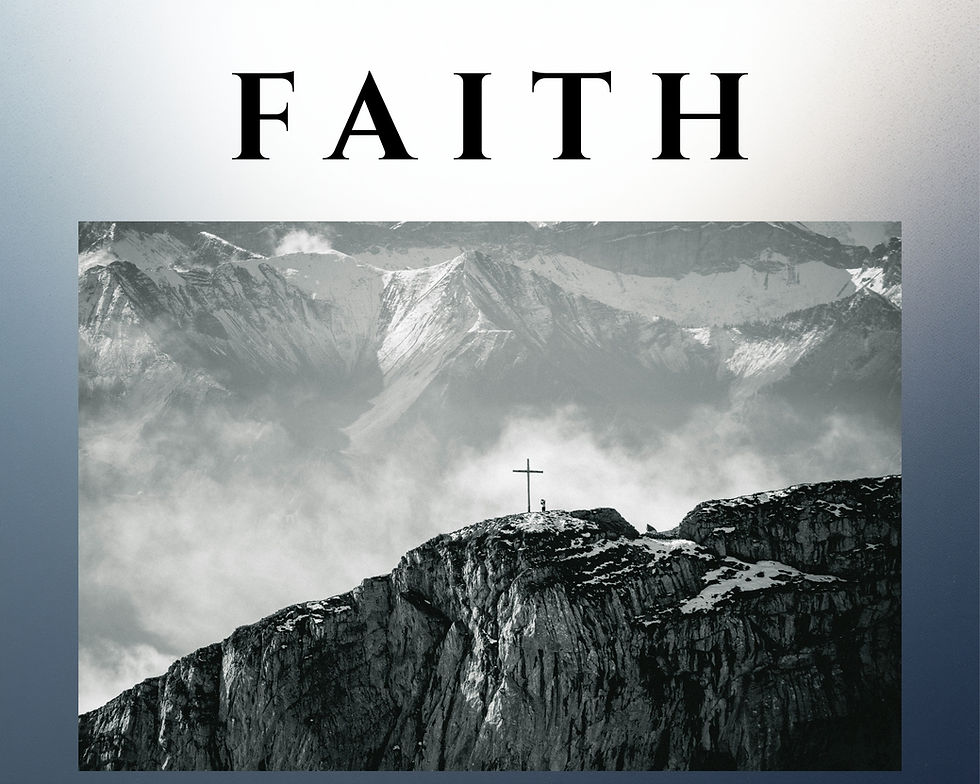From CRT to JRT (from Critical Race Theory to Joyful Race Truth)
- fathermark

- Feb 28, 2022
- 4 min read
Updated: Mar 10, 2022

Critical Race Theory has been quite the stir during the whole pandemic period: race defined along justice lines – oppressors and oppressed, the privileged and those who are exploited by the privileged. My intention here is not to quibble over the merits or lack thereof of CRT, but to set before us a more glorious view of the peoples and nations of the world. It's not exactly a theology of race, but I think it's helpful to consider part of the biblical understanding of the differences between us. And by “between” I don't mean that the differences are intended to cause division, but that they are simply a matter of distinction. And intentional distinction at that – distinction that amplifies (or was supposed to – and one Day, most assuredly will – amplify) the glory of God.
In Acts 17, we find the apostle Paul waiting for his friends in Athens. While waiting, he notes the grand displays of their religious zeal in the varying temples and altars and idols, including an altar dedicated to the unknown god. Paul uses this as an avenue to try to preach Christ as the God the Athenians know not.
What he says to the Athenians is really rather remarkable: 24 The God who made the world and everything in it, being Lord of heaven and earth, does not live in temples made by man, 25 nor is he served by human hands, as though he needed anything, since he himself gives to all mankind life and breath and everything. 26 And he made from one man every nation of mankind to live on all the face of the earth, having determined allotted periods and the boundaries of their dwelling place, 27 that they should seek God, and perhaps feel their way toward him and find him. Yet he is actually not far from each one of us, 28 for “‘In him we live and move and have our being’.... Older translations read “He [God] has made of one blood every nation of men....” Our prayer book tradition picks this verse up in a prayer for mission, acclaiming God as the One who 'made of one blood all the peoples of the earth.'
The basic affirmation here is the truth that we are all equally human. Regardless of race, we are all of the same stuff, of one blood, and we all have the same needs and share a common brokenness. Especially, we all have a need for a Savior and to be reconciled to God. But Paul also declares that it was God who determined the times and places for the various nations of mankind, and that His purpose in such assignments was to draw them all to Himself.
God made peoples and nations unique, even as he makes individuals unique. Far from being a problem, this is so that each unique person or people is a unique reflection of God's infinite glory. By the multitude of people and nations, we see more of the image of God and, when people or nations turn to Him, we see in them yet greater truth about the being and character of God.
CS Lewis scribbled this note in the flyleaf of one of his books: “All that you are...every fold and crease of your individuality was devised from all eternity to fit God as a glove fits a hand. All that intimate particularity which you can hardly grasp yourself, much less communicate to your fellow creatures, is no mystery to Him. He made those ins and outs that He might fill them. Then He gave your soul so curious a life because it is the key designed to unlock that door, of all the myriad doors in Him.” (Cited by Eugene Peterson in his Five Smooth Stones for Pastoral Work). Lewis was speaking of individual persons, but the same could be said for the uniqueness of races and nations. It's 'the one and the many' thing all over again. Each person, each race, each nation, when united to God in Christ, is a key that unlocks a unique door to reveal more of God's glory.
In the sixtieth chapter of the book of Isaiah the prophet, we find a glorious passage about the nations of the world coming to Zion, bringing their unique gifts and offerings to beautify the worship of God, to enrich the city of God, and to make it a fit habitation for the Holy One of Israel ('Israel' as a spiritual designation for God's people, not as an identifier of a particular nation-state). It reads like the Old Testament vision of the New Testament's gathering of people from every tongue, tribe and nation around the throne of God as seen in the book of Revelation.
God's purpose in His Son is to redeem the world and to redeem the peoples of the world. In doing so, He will not obliterate the distinctions that He uniquely created. He will not turn humanity into one homogenous, cookie-cutter something-or-other. Rather, the uniqueness of individuals, peoples, races, and nations will be maintained; but each will be brought to their glorious perfection. The differences will be a majestic, awesome, radiant and beautiful echo of the infinite creativity of their Maker. Each will be most truly themselves; and yet, they will still be of one blood. But then, the one blood will be the Blood of Christ.




Comments